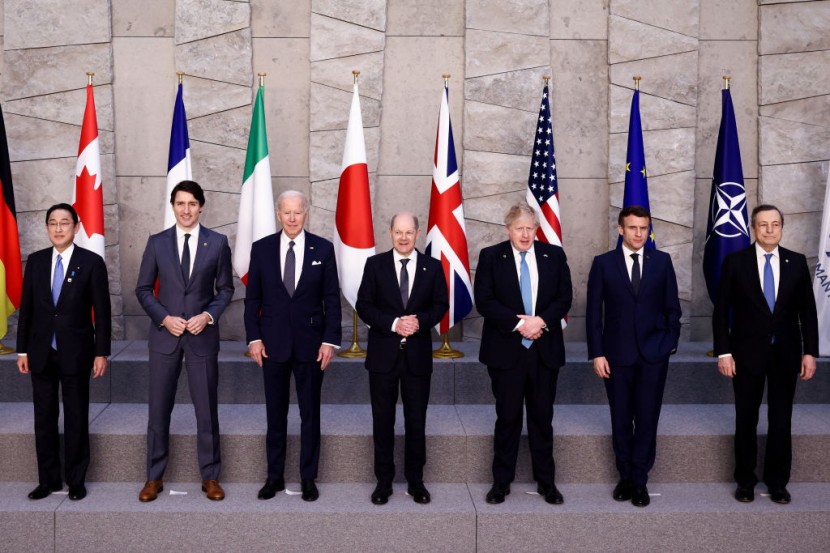
As part of a larger joint statement to be released next week, the Group of Seven (G7) leaders are expected to express concern over China's use of "economic coercion" in its international dealings.
According to a US official familiar with the discussions, the statement is likely a component of the overall communique that leaders will release at the May 19-21 summit in Hiroshima, Japan.
G7 Talks Focus on China's 'Economic Coercion'
The statement is expected to accompany a broader written proposal outlining how the seven advanced economies will collaborate to counter "economic coercion" from any country. The official said that the primary G7 statement would include "a section particular to China" with a litany of concerns, including economic coercion and other behavior that we have explicitly seen from China.
According to the individual, a separate "economic security statement will speak more about instruments" used to counter coercive efforts by any responsible countries, including planning and coordination. In each case, it is anticipated that the statements will go further than previous G7 statements, said Reuters.
US President Joe Biden has prioritized China in his foreign policy, striving to prevent the tense and competitive relationship, including over Taiwan, from deteriorating into one of open conflict. In addition to the United States, Canada, France, Germany, Italy, and the United Kingdom, China is the world's largest exporter and a key market for many of the G7's companies.
Last month, China labeled a G7 foreign minister's statement on similar topics as "arrogant and biased against China" and lodged complaints with this year's G7 host country, Japan. The G7 meeting will measure the members' ability to concur on a common approach to China, the second-largest economy in the world, according to Financial Post.
G7 finance leaders are presently in Niigata, Japan, focusing on reducing their countries' "over-reliance" on Chinese manufacturing through partnerships with low- and middle-income nations. Some G7 members are hesitant to endorse controls on Chinese outbound investment.
The policies are being formulated partly to deny China's military access to tools it could use to achieve technological superiority. Many in the Biden administration view them as complementary to export controls limiting access to certain semiconductors with the same objective.
While traveling to Japan for the G7 finance meeting, US Treasury Secretary Janet Yellen stated that China had used economic coercion against Australia and Lithuania.
An absence of progress in resolving the US debt ceiling impasse hung over the meeting. As Biden's Democrats and Republicans seek a compromise to avert a catastrophic default, the Friday meeting between Biden and senior legislators has been rescheduled for early next week.
Read Also : Pope Francis Blasts Couples with Pets Instead of Babies, Calls on Italy To Boost Birth Rates
Chinese Warships Sail Around Japan
Meanwhile, Chinese warships sailed around Japan to display military dominance before the G7 Summit in Japan. A Chinese naval flotilla commanded by a powerful destroyer has completed a 12-day circumnavigation of Japan's main islands. This comes as the Group of Seven leaders prepares to convene in Japan beginning on May 19.
The Japanese Defense Ministry released a map depicting the Type 055 guided missile destroyer Lhasa, one of the People's Liberation Army Navy's most powerful warships, leading a four-ship flotilla consisting of a smaller destroyer, a frigate, and a supply ship on a clockwise circumnavigation.
The voyage began on April 30 in the Tsushima Strait between South Korea and Japan, continued through the Tsugaru Strait at the northern point of Hokkaido on May 5 and 6, and by Thursday, had reached the Izu island chain south of Tokyo. Per Big News Network, Japanese Prime Minister Fumio Kishida stated that "the peace and stability of the Taiwan Strait are crucial not only for our country but for the entire international community."
Chinese naval flotillas have circumnavigated Japan in the past, most notably when a Chinese-Russian flotilla of 10 ships did so in October 2021. Analysts anticipate more circumnavigations as the PLA Navy frequently exercises its capabilities outside China's territorial waters.
Related Article : Australia Trade Minister Visits China, Urges To Repair Ties








